Medical equipment
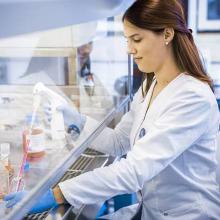
GSI/FAIR researchers in the battle against COVID-19
The GSI Helmholtzzentrum für Schwerionenforschung and the Facility for Antiproton and Ion Research (GSI/FAIR) develops innovative research strategies to support the fight against the current COVID-19 pandemic. The Biophysics Department plans to inactivate the virus with high-energy heavy ions in order to develop vaccines in cooperation with the Helmholtz Centre for Infection Research (HZI). In addition, the therapeutic effect of low-dose radiation against pneumonia caused by SARS-CoV-2 is currently being investigated. The Materials Research Department is working on membranes made of nanopores for improved and fast virus detection and for the development of tailored membranes for viral filtration masks.
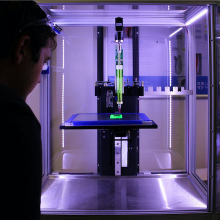
CNH2: Rapid access to facilities for PPE production
In response to the COVID-19 pandemic, the National Hydrogen Centre (CNH2) provides rapid access to laboratories and services, such as laser cutting machines, 3D printers and machining centres. Moreover, CNH2 has already produced more than 1 ton of hydrogel and 150 masks for local distribution. Relevant proposals and requests can be submitted via email, through the dedicated webpage (Spanish).
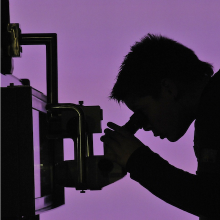
ELECMI: Rapid access to microscopy facilities
In the context of COVID-19 pandemic, the Integrated Infrastructure for Electron Microscopy of Materials (ELECMI) provides rapid access to various instruments (HRTEM, including STEM, SEM, Cryogenic Dual Beam instrument, and associated techniques) for studies on materials characterisation, such as the analysis of textiles for Personal Protective Equipment or particles from filters.

CERN Against COVID-19 initiative
The objective of the CERN against COVID-19 initiative is to ensure effective and well-coordinated action, drawing on CERN’s many competencies and advanced technologies and working closely with experts in healthcare, drug development, epidemiology and emergency response so as to maximise the impact of CERN contributions. CERN is focusing these efforts in three action areas:
- Medical applications: design and production of medical supplies and equipment, ranging from producing sanitiser gel, to developing full-scale ventilators for use in hospitals.
- Computing and data analysis: the vast global computing resource, Worldwide LHC Computing Grid, (WLCG), and CERN openlab collaboration can provide considerable resources for fighting the pandemic.
- Help to society: emergency response teams available to support local ambulance services, donations of PPE, production of Perspex barriers to protect those working in public services.
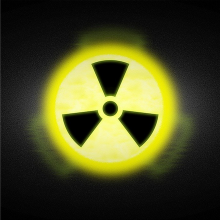
INCT: Insights in radiation sterilization
With the unprecedented pressure on the supply of PPE, medical devices and laboratory supplies created by the COVID19 pandemic, radiation sterilization is now investigated as a possibility. The Institute of Nuclear Chemistry and Technology (INCT) operates six electron accelerators in the frame of the RAPID infrastructure, which includes one installation designed for R&D and mass sterilization of a wide range of disposable medical devices, including personal protective equipment (PPE) and tissue allografts. INCT is studying a case with national sanitary authorities to find effective methods of dealing with currently threatening Sars-Cov-2 and other pathogens that may appear in the future. Coronaviruses are RNA viruses very sensitive to ionizing radiation and can be deactivated by electron beam, X-rays or gamma rays, but the data for COVID-19 are still not sufficient. The global actions and joined research are needed to gain knowledge of all aspects of emerging disease, thus all comments or information about similar activities are welcome (contact Prof. Chmielewski via email).
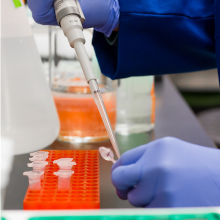
INCDSB: Biomedical services for COVID-19 testing
The PCR-RT capabilities of the Romanian National Institute for Biological Sciences (INCDSB) - member of the ESFRI Consortium DANUBIUS-RI - as part of the global efforts to fight against COVID -19, has made available the services for the Coronavirus testing and is now very actively cooperating with the Romanian Government in the testing campaign at national level. INCDSB is actively supporting Romanian Government with trained personnel, logistics and infrastructure (several devices and a laboratory of cell cultures with expertise in cytotoxicity testing of medical devices).
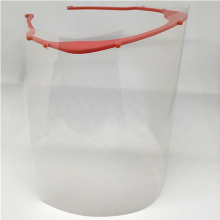
Fablab Mons: Free protective visors for medical staff
In coordination with the FabLabs of Wallonia, the FabLab Mons has been involved since the beginning of the epidemic in the development and production of solutions to fight Covid-19 and thus help healthcare professionals who are on the front line. More than 6,000 of protective visors have been produced to date and are intended for the medical professionals, firemen, policemen etc. The aim of these visors is to extend the life of the masks by avoiding projections. This project is possible with the help of volunteers and the support of UMONS, Fund for Medical Research in Hainaut (FRMH) and the FEDER.
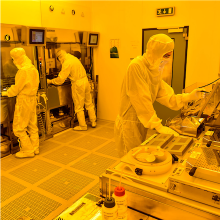
CzechNanoLab: Nanostructures and nanomaterials services
CzechNanoLab provides open access to the equipment and services in nanotechnology and materials science. The services provided include testing of personal protective equipment (PPE) made of nanomaterials, e.g. analysis of nanofibre filters, chemical analysis of active nanoparticles etc. CzechNanoLab capacities are also offered for the synthesis of magnetic beads used in tests for SARS-CoV-2 presence. Moreover, a priority cost-free access for projects directly related to the research of SARS-CoV-2 coronavirus (e.g. development of microfluidic chips for RNA sequencing)will be provided. CzechNanoLab consists of two sites, the CEITEC Nano Research Infrastructure (Brno), and the Laboratory of Nanostructures and Nanomaterials (LNSM, Prague).
CzechNanoLab is involved in pan-European research infrastructure EuroNanoLab, which is focused on nanofabrication technologies.
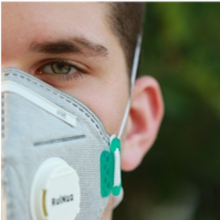
KM3NeT-LNS: Functional testing of fabrics for PPE
The hosting laboratory of the KM3NeT Infrastructure"Laboratori Nazionali del Sud" (LNS) of INFN, in collaboration with the University of Catania, has realized a laboratory for the verification of the functional qualities of fabrics intended for the manufacture of masks and other Personal Protective Equipment (PPE) for the prevention of contagion in the COVID-19 emergency. The ANTI_COVID-LAB laboratory will provide technical-scientific assistance to companies that may request to test fabrics to make masks and other medical devices according to the standards set by current regulations, by performing the characterization of the materials, their morphological analysis and will study the capability of the tissues to prevent the virus diffusion.
